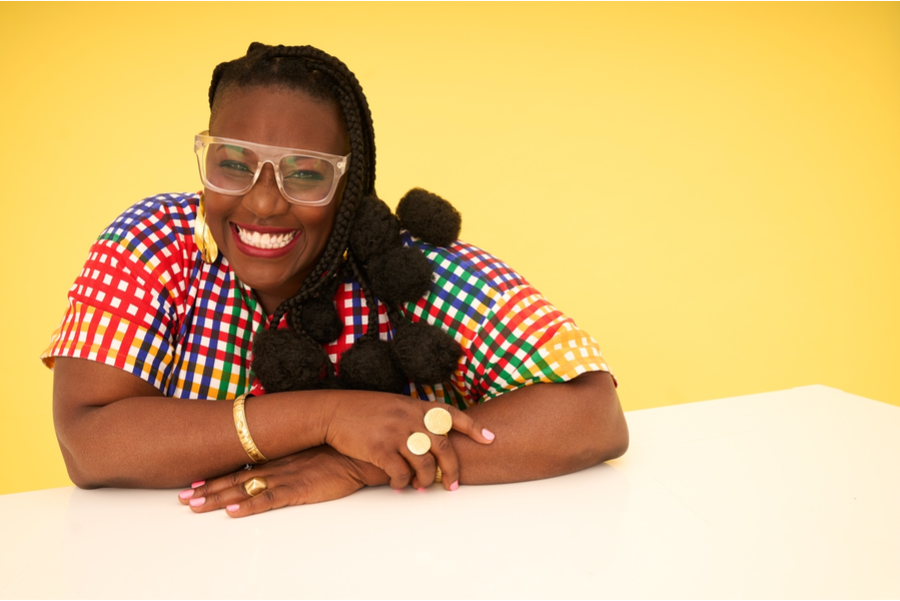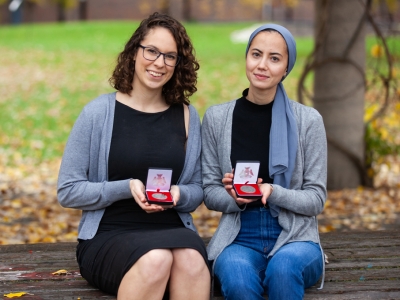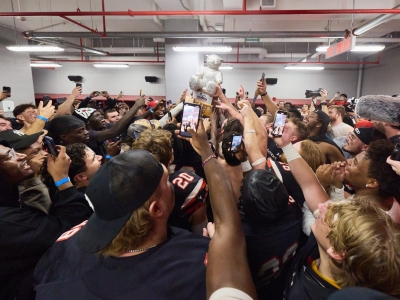By Elizabeth Kane
Since becoming Carleton University’s inaugural Carty Chair in Journalism, Diversity and Inclusion Studies in 2021, Nana aba Duncan has transitioned from hosting provincially broadcasted radio programs, such as the CBC’s Fresh Air, to sharing knowledge in the classroom.
As the Carty Chair, Duncan is leading change in the education of tomorrow’s journalists to create an inclusive environment for all, addressing long-standing systemic bias and racism within the profession.

Prof. Nana aba Duncan
“Anti-Black racism has a way of making you feel like you don’t belong in the room,” she says. “And that is ridiculous because journalism is meant to reflect all of us.”
Tackling Systemic Racism Through Education
Duncan created the course Journalism and Belonging to help future journalists recognize the necessity of diversity and inclusion in reporting, while gaining an understanding of how discrimination and bias impacts editorial decisions and career progressions in the field.
“The heaviest thing that I was concerned about when I first started, was the impact that I would make,” she says.
“The historical role of anti-Black racism in Canadian journalism is important to understand.”
Class assignments are one way that Duncan teaches this history. In one reading, she included an example of a newspaper ad calling for information about an escaped enslaved woman – demonstrating how the industry profited from slavery from its early days.
“It makes sense that news media isn’t properly reflective of Black communities because it’s part of the system,” she says.

Internship Offers Experiences and Connections for Future Journalists
Expanding the reach of her work outside of the classroom, Duncan is launching an internship for Black, Indigenous and racialized students. The program will take place out of the soon-to-be developed Mary Ann Shadd Cary Centre for Journalism and Belonging – a physical space housed in the School of Journalism and Communication dedicated to journalism practice and the intersections of race, gender, sexual orientation, disability and socioeconomic status. She launched a FutureFunder campaign and raised over $9,000 to support the internship program.
The interns will assist in the centre’s research projects, engage with industry contacts and attend a journalism conference. The program will help students gain experience and foster connections that will benefit them as they launch their careers.
“One thing that I have learned, having made some really special relationships with other Black journalists, is that those connections can be what gets you through the tough moments,” says Duncan.
“Being able to build those kinds of relationships early on really helps people to have a stronger career.”
Tough workplace moments grounded in systemic bias and racism are something Duncan has faced first-hand. She recounts a particularly jarring incident when a colleague attributed her career achievements wholly to the fact that she is a Black woman.
“I was stunned,” she recalls. “The implication was that my success didn’t have anything to do with my talent. As someone who was fairly new in her career, it was a hard thing to hear.”

Research Aims to Address Industry Harms
Studying the experiences of Black journalists and the challenges they face as they manage anti-Black racism is a focus of Duncan’s current research. Engaging with journalists to collect their stories, she seeks to understand what strategies they use to help them persevere and stay in the industry. Duncan hopes this work will help inform how the industry treats Black journalists.
“The institution that is journalism should be much more welcoming to all different viewpoints, perspectives and communities,” she says.
Honouring the perspectives of communities is a core component of a project Duncan is developing with Prof. Eternity Martis of Toronto Metropolitan University in partnership with the Canadian Commission for UNESCO (CCUNESCO). Reporting In Black Communities: A Guide For Journalism Educators And Journalists In Canada will examine the impact of anti-Black racism in the reporting of negative news about Black communities.
The project will hold focus groups with communities, journalists, and editorial leaders across Canada to inform the creation of an online guide and resources for journalists, as well as modules that can be utilized by educators to teach the next generation of reporters.
“We want to reduce the harm that has come to Black communities and find strategies on how to prevent those harms.”
There is still much to be done to make the profession more welcoming to Black reporters and communities, but Duncan’s work is a significant step in the right direction.
“In order to help make it better, we have to consider how we report on those communities and how we treat members of those communities when they enter the profession of journalism.”
Thursday, March 7, 2024 in Faculty of Public and Global Affairs, Journalism and Communication
Share: Twitter, Facebook



